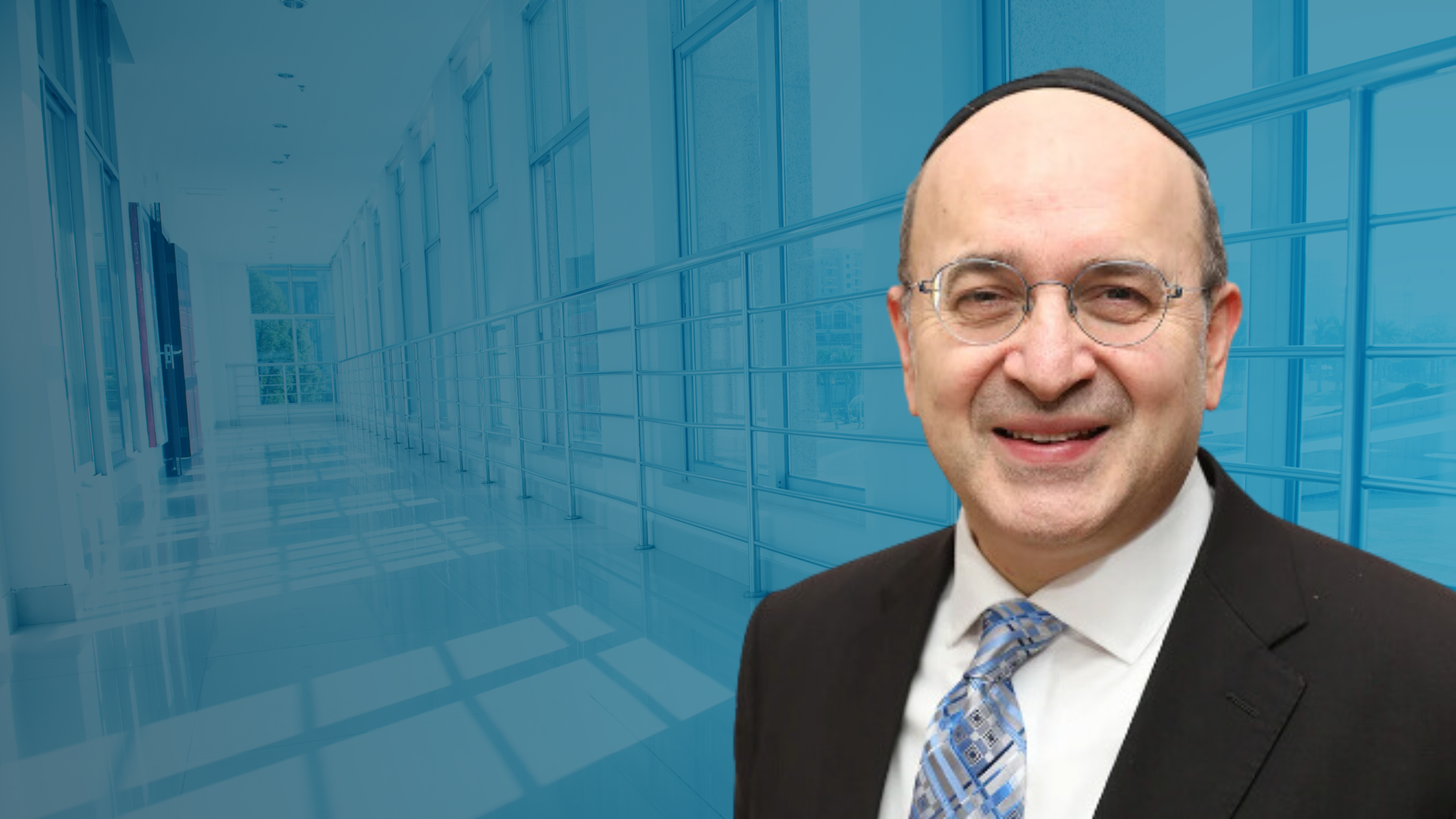AMC Health is poised to change the way business is done in the healthcare community. From emphasizing the importance of improving patient outcomes to streamlining efficiencies for payers…and everything in between, AMC’s strive for enhancing care, availability, and equity has no bounds.
In an effort to make proper healthcare a reality for all Americans, AMC’s CEO Nesim Bildirici has dedicated his career to helping solve complex challenges through practical solutions. The inception of AMC’s business operations started as part of a personal journey for Nesim, but has evolved into a thoughtful team that is transforming costs, efficiencies, and interactions.
Where did AMC start and what comes next for the company and the industry? Nesim digs into the difficult questions to provide actionable insights about learning from the past to improve the future.
What is your personal connection to AMC Health?
Nesim Bildirici: I’m the CEO and the founder of the company. The way we established this company was based on my personal experience with my father with congestive heart failure. I found that I couldn’t really help him with his health and managing the chronic illness.
I found out very quickly how fragmented the healthcare industry was and how a patient who has a chronic illness needs more of a continuum of care whereas the healthcare industry was more established based on episodic care.
I felt there must be a better way to care for my father to improve the quality of his life. And that was the basis of getting involved with this company.
What predictive and prescriptive insights does AMC offer?
NB: In the past, a patient with heart failure or any illness status that requires more of the continuous care has been managed in a way that when a patient doesn't feel well, they just go to their physician.
And then obviously, at the time of the visit to a physician, or, for that same reason, going to the emergency room…at that moment, there is a real assessment of what needs to be done.
When the patient gets back home, it may no longer be clear. Again, there's no clear visibility into how they are doing on a day-to-day basis. Let's face it, it's not just about monitoring. It's about the patient who has a life. Each one has their own surrounding, own setting of a home. And some days, they are more tired than the others.
Again, that whole overall set-up is just not visible in any other setting than the home itself, and being able to capture that information and then act on it is really very meaningful.
Since we’ve been doing this for the past twenty years, we learned a lot in terms of patient behavior. Again, each patient is different, and that's what makes what we do so unique because we effectively customize our solution towards each patient.
Based on their psychosocial issues, based on their own disease states, based on their own surrounding of the home or their own challenges, we will come up with a clear care plan and make sure that they are following that care plan. And it is unique to them.
As a result, we can learn how their care plan needs to evolve to meet their needs, and how their illness is evolving accordingly. We're going to make adjustments and automate those adjustments using Machine Learning and other types of tools that we have deployed.
So, what's happening is that when you want to go from distance A to distance B, you put in Waze and it effectively leads you to that location’s best possible route. That's what we're trying to do.
Once we know the patient and all their issues and all their surrounding low variables, then we're building a platform that's going to allow them to really lead their life in a path that's going to get them to best outcome.
How can AMC Health impact the continuum of care?
NB: I think any kind of a continuum of care has to take into account the home. It has to be able to integrate the home while effectively managing patients at their most comfortable place and where they live most of their life managing their chronic illness.
And, what I believe is essential to that, is being able to create visibility into how well they're doing within the management of their care while effectively using technologies to create that visibility, as well as capture it from where they're comfortable in real time.
This allows us to really revolutionize the way care has to be managed. Now, you have the clinical teams who are able to have much more timely information, and obviously clinically actionable information that provides the type of care that's needed to manage chronic illness.
In addition, I believe that patients need to feel empowered to be able to manage the type of care that's needed to manage chronic illness. And many times, the patients are left alone with no tools. And that's exactly why what we do at AMC is unique. We not only empower the patients with the tools to be able to better manage the chronic illness, but also we provide that clinically actionable data to clinicians and the right tools to manage and connect with their patients on a timely basis.
And this is the only way, frankly, a patient who has any kind of illness that that requires continuous healthcare needs to manage their overall health. I think the power of that real-time data is something that's very unique to us.
Effectively, we have been collecting that data and using it in a way that's even more clinically actionable every day. It’s not only predictive, but it's also prescriptive and allows us to really make a difference in the way care is being managed at home.
So, instead of care in the past going to the clinics, to the hospitals, we're bringing care to the home, where it's going have you have the most impact for those patients.
What are some of the trends of the last 20 years?
NB: The reality is that over 70 million seniors will be around by 2030. And, again, today, there’s 62 million of them. So, we're going be adding 8 million more seniors to the population. 45% of people today have chronic illness, not just seniors, that’s in all of the population of the United States.
They need to be managed differently than what has been done in the past. This is not an episodic situation where they get sick, then they go to the hospital and get on a plan and get better. They're not going to get better.
They need to be managed, and the only way that can be done is through technology and data. Real-time data that we're capturing and allowing patients to use to better manage their care empowers them.
We're not going to have enough clinical resources to take care of them whatsoever. And effectively, care has to move back home. And we have to empower the patients with these tools. Effectively, that's the only way we're going to be able to control the cost in healthcare. That’s the only way we're going be able to provide quality care to the patients.
How is AMC focusing on the current challenges in healthcare?
NB: I don't think there's a silver bullet. We have to work on all fronts, but bottom line, the provider is essentially the trusted partner for the patient. I really need to make sure that we are empowering the provider to better engage with the patient.
But, I'll also tell you, because we are leveraging real-time data, plus all the other forms of information we're able to collect from the patients, we're not able to really effectively use Machine Learning tools to automate a lot of these interactions so that we can really empower the clinicians to really focus when they really need to.
The clinicians are a limited resource. So, if we just give them a lot of data, that is not going work. We are giving that clinical actionable data, as well as we are doing our best push down as much of the knowledge to the patient by providing them the tools that are adjusting to their needs, and guiding them and teaching them so that the clinicians are not burdened by that.
And in fact, that is the only way that using again, that intelligence that we are collecting will continue to collect and to customize it to the needs of the patients as well as to the expectation of the clinicians to better manage their patients.
How is healthcare adopting new technologies?
NB: I think healthcare, by definition, since you are caring for a patient, you have to be overly cautious to make sure that you're using best practices to impact the patients.
I understand the conservativeness that's out there. I believe that people like us, where we've seen the power of the results that we may want to achieve, that we need to continue to educate the clinicians and explain to them frankly, there's no other way. There's no other way to take care of patients than taking care of them at home based on real-time data. And the technology is there. The capabilities are there.
The only thing that's holding the movement forward is really their ability to adopt this. And we will welcome the opportunity to tell them how we have been able to achieve in life scale.
We're one of the two exclusive vendors to the VA, which has the largest, home, telehealth program in the world. And effectively, they made a standard of care, and they've seen the results of how this impacts their patients in such a positive way and the actual health have 1,200 care coordinators dedicated to this program to manage over 60,000 patients.
And kudos to them, and we want the rest of the healthcare system and payers and insurance companies to realize this is a game changer the way care should be provided.
It will help both the patients, as well as all the healthcare industry to reduce the cost of managing these costly patients and really improve the quality of their life, where they want it to be the best, which is at home.

%20(1).png)
-3.jpg)

-Dec-16-2025-08-31-35-5224-PM.jpg)
